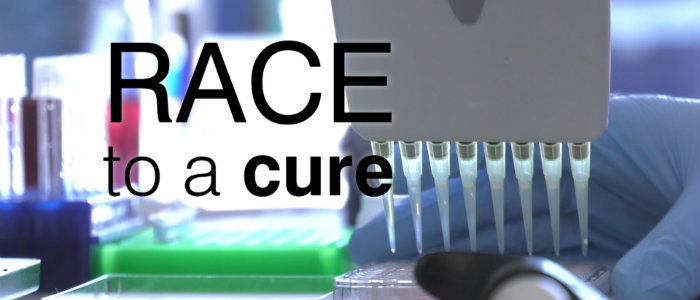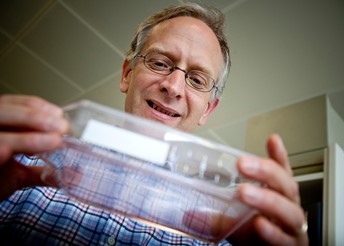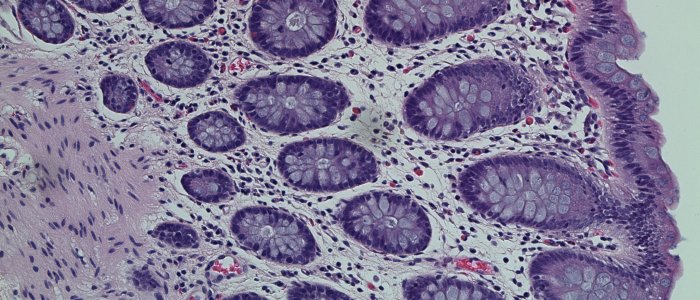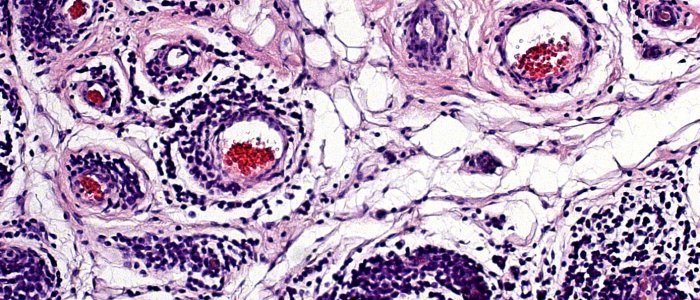Research
Rheumatoid arthritis occurs when external factors (e.g., smoking) interact in people with a genetically predisposed immune (defence) system, to somehow cause arthritis. Why this happens and especially why the joint is attacked is very uncertain. Furthermore, rheumatoid arthritis is not the same in all people and response to current therapies is not universal. Why this happens is also very uncertain. To tackle these issues, we are:
- Intensively studying a variety of cells present in people with rheumatoid arthritis, the chemicals they produce and how the joint tissue itself responds
- Alongside this, we are studying different groups of people with rheumatoid arthritis (early and established disease, treatment responders and non-responders), to gain insight into our understanding of rheumatoid arthritis and how to treat people.
- Using experimental models, state-of-the-art imaging and sophisticated cellular, molecular biology, and computational techniques, to make an encyclopaedia of the molecules that perpetuate disease
- Integrating all our new knowledge in a ‘virtuous discovery cycle’ to reinforce our understanding, so we can eventually progress towards a cure in rheumatoid arthritis.
The four universities provide complementary expertise to allow us to progress towards a cure at a faster rate than we would if we were working on our own.
Newcastle University
An internationally recognised Centre of Excellence, the Musculoskeletal Research Group is focused on delivering effective treatments to the large number of patients who live with musculoskeletal disorders across the world. The University has a large team of around 100 clinicians and scientists dedicated to improving the diagnosis, management and understanding of arthritic diseases, including osteoarthritis and rheumatoid arthritis, and other autoimmune disorders such as Sjögren's Syndrome.
As the population ages, many of these musculoskeletal diseases are seen more often and the group has access to the world-class research and facilities of Newcastle University’s purpose-built campus -The Campus for Ageing and Vitality – including state-of-the-art imaging technologies.
Based in the University’s Institute of Cellular Medicine, the team brings together expertise in genetics, immunology, rheumatology, orthopaedics, engineering and other disciplines. Together with the Newcastle upon Tyne Hospitals NHS Trust, the team offers patients access to international clinical studies. The Translational Research Programme, supported by the NIHR Newcastle Biomedical Research Centre, is designed to bring novel treatments to the clinic sooner rather than later. The Arthritis Research UK Newcastle Experimental Arthritis Treatment Centre was founded to provide access to these novel therapies.
Newcastle is a leader both in the use of tolerogenic dendritic cells to treat joint damage, and the re-purposing of oncology agents for the treatment of rheumatoid arthritis.
University of Birmingham
The Rheumatology Research Group has focused on collaborative research along lines of common interest. These collaborations include those with basic scientists as well as those running clinical studies. This has provided a clear focus on important biological questions that cross traditional disciplines and often require long-term commitment and investment.
A central of objective of our research is to improve clinical outcomes for those with, and at risk of developing, rheumatoid arthritis, Sjogren’s syndrome and SLE.
Our multidisciplinary team of academic and clinical rheumatologists, general practitioners, biological and social scientists, allied health professionals and patient representatives works in an integrated way to develop and deliver our research objectives.
Our major focus is on inflammatory arthritis and in particular the pathobiology and comorbidity associated with rheumatoid arthritis and Sjogren’s syndrome as well as the epidemiology, clinical management and outcome of SLE. A particular strength research in Birmingham is the role of the tissue microenvironment in shaping immune and inflammatory responses.
University of Glasgow
The School of Infection and Immunity is an internationally recognised centre of excellence conducting high quality basic, translational and clinical science in the disciplines of infection, immunology and inflammation.
Our scientists and clinicians work together to promote and develop research, drug discovery, precision medicine and ultimately improvements in patient care in these areas of critical international importance. The Research into Inflammatory Arthritis Centre Versus Arthritis is one of a number of research centres based within the School.
Research activities in immunology and inflammation are incorporated in the School's Centre for Immunobiology. Our research strengths include cellular and molecular immunology as well as cytokine and chemokine biology.
These are underpinned and strengthened by cutting-edge high-throughput polyomic analysis (Glasgow Polyomics), real-time in vivo imaging expertise, including one of the most advanced multiphoton imaging facilities currently available in the UK, advanced cellular analysis and sorting facility, as well as by a wide range of in vitro and in vivo expertise.
In recognition of their key role in understanding and treating rheumatism, all four universities have been awarded the status of European Union League Against Rheumatism (EULAR) Centre of Excellence.





